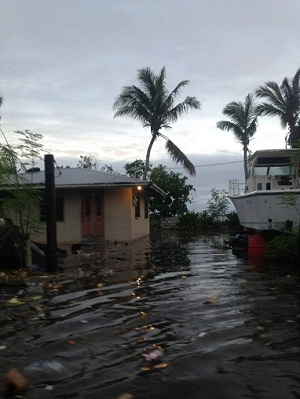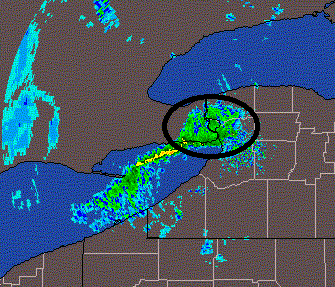Zero is a fascinating word and concept. The concept of zero can be attributed to mathematicians in India over a thousand years ago. Jaina mathematicians may have been the first to use the word shunya (meaning void in Sanskrit) to refer to zero. The concept of zero travelled quickly through philosophical and mathematics worlds, as many cultures were struggling with the concept of “nothing” in mathematics. Some mathematicians and philosophers referred to this concept as one of the greatest inventions or discoveries in the history of mankind, rivaled only by the invention of the wheel.
Why is zero so important? Mathematically, zero is often used in reference to calculations and measurements. In the scientific world, we often consider mathematics as the language of science; therefore, in science it also refers to a calculation or a measurement. In many cases, knowing the absence of something is sometimes just as important as knowing the presence of something, such as migrating animals or even rainfall.
Let’s look at two real world examples that indicate how important zero is to Earth science:
First, let’s look at the Marshall Islands: The Marshall Islands, a collection of coral atolls and low-lying islands in the North Pacific, are undergoing a unique climate shift. These islands, which comprise about 181 square kilometers of land, are experiencing extreme drought and extreme flooding simultaneously. The following two pictures were taken only a month apart, but on two different islands, depicting two very different conditions.
To put these two extreme events in perspective, observe the following map of the Marshall Islands.

Map of the Marshall Islands, from cia.gov
If only one atmospheric station reported data in a situation like this, then one could assume that the entire country was experiencing the same weather; Additionally, if atmospheric observers didn’t value the submission of zero rainfall and only reported data when there was rainfall, those not directly connected to these islands might think that it always rains and on certain days, observers fail to report their data. That is obviously not the case, as can be seen in the two photos. It’s important to collect and submit all observations to understand the entire scenario.
Second, let’s look at the Great Lakes region of New York State: In September of 1996, flooding occurred north of Buffalo, New York due to a lake effect rain event. A lake effect rain occurs when the air temperature is much colder than the water temperature of a nearby lake. As the cold air passes over the warm lake, some of the lake’s water evaporates and precipitates out (as either rain or snow, depending on how cold the air temperature is) over areas downwind of the lake. In this specific example from 1996, Lake Erie observed water surface temperatures of 22.8°C, while the air temperature overnight was around 8°C. As you can see by the radar image below, there was only a small area of land that experienced this extreme weather event (within the circle).
In meteorology and climate research, it is just as important to know when rain does not occur as when it does. Therefore, when you check your rain gauge or snow board you are collecting data on how much rain or snow fell. Noting zero rainfall in the rain gauge is as valid and important as noting that the cloud cover is “No Clouds” (0% cloud cover) or zero Hummingbirds were observed at the feeder.
Consider this: a desert is a place with little or no rain and is indicative of a location’s climate; a drought is a time when little or no rain falls, and is indicative of a longer term weather pattern. Knowing when and where precipitation falls is significant in understanding the environment, as it helps to distinguish between whether or not a location is a desert or is only experiencing drought. What this means in practice is that if you observe nothing in your rain gauge you should report zero for liquid precipitation.
If you see that there is no precipitation in the rain gauge, leaving that field blank is not the same as noting that no rain was in the rain gauge. If you report zero, others will be certain that there was no rainfall and a zero will show on the map for your site. Having your measurement of zero included in the day’s dataset improves the contours on the visualization and helps everyone recognize the true extent of GLOBE student observations and contributions to environmental knowledge.
Suggested activity: Ask a friend, parent or teacher to describe the importance of zero in his or her daily activities. Does zero have value in your life? We hope through this post that you understand how valuable an observation of zero really is. On your next visit to your atmosphere site, please be sure to take note of your rain gauge and report your rainfall amount, even if it’s zero.




Zero plays an important role in our life. Everything goes around it. It is possibly the most important discoveries all the time. There is nothing in life without Zero. Thanks author for getting this live for us and we are happy to read it and also we are happy being an Indian as Zero was discovered by Aryabhatt an Indian.
Dear Jessica,
very clever article, thank you for this thought-provoking post! I graduated in philosophy at the university, so close to me are the same thoughts!
Thank you again!
George
its nice blog, Thanks For Sharing with us
Thanks for sharing this glob scientist blog. It is very bad flooding day in Majuro. Zero is a fascinating word and concept. Mathematically , zero is ofter used in calculations and measurement. Zero plays very important role in our life. I really enjoying to read this article about zero is a still measurement. keep posting.
Thanks